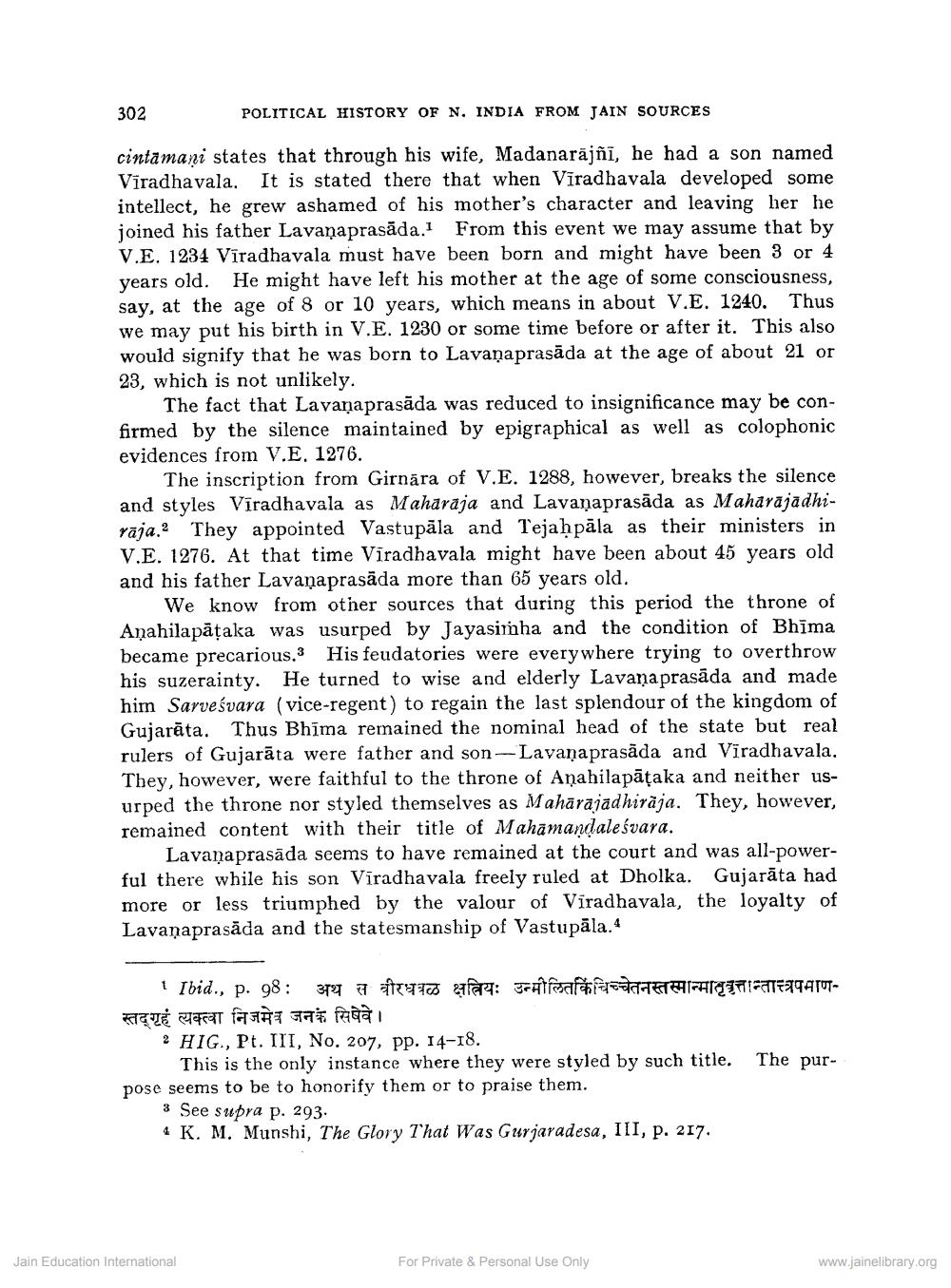________________
302
POLITICAL HISTORY OF N. INDIA FROM JAIN SOURCES
cintamani states that through his wife, Madanarājñi, he had a son named Vīradhavala. It is stated there that when Vīradhavala developed some intellect, he grew ashamed of his mother's character and leaving her he joined his father Lavaņaprasāda. From this event we may assume that by V.E. 1234 Vīradhavala must have been born and might have been 3 or 4 years old. He might have left his mother at the age of some consciousness, say, at the age of 8 or 10 years, which means in about V.E. 1240. Thus we may put his birth in V.E. 1230 or some time before or after it. This also would signify that he was born to Lavaṇaprasāda at the age of about 21 or 23, which is not unlikely.
The fact that Lavaņaprasāda was reduced to insignificance may be confirmed by the silence maintained by epigraphical as well as colophonic evidences from V.E. 1276.
The inscription from Girnāra of V.E. 1288, however, breaks the silence and styles Vīradhavala as Maharaja and Lavaņaprasāda as Maharajadhiraja.2 They appointed Vastupāla and Tejahpāla as their ministers in V.E. 1276. At that time Vīradhavala might have been about 45 years old and his father Lavaņaprasāda more than 65 years old.
We know from other sources that during this period the throne of Anahilapāțaka was usurped by Jayasimha and the condition of Bhīma became precarious. His feudatories were everywhere trying to overthrow his suzerainty. He turned to wise and elderly Lavanaprasāda and made him Sarvesvara (vice-regent) to regain the last splendour of the kingdom of Gujarāta. Thus Bhīma remained the nominal head of the state but real rulers of Gujarāta were father and son-Lavanaprasāda and Viradhavala, They, however, were faithful to the throne of Anahilapāțaka and neither usurped the throne nor styled themselves as Mahārajadhiraja. They, however, remained content with their title of Mahamandalesvara.
Lavaņaprasāda seems to have remained at the court and was all-powerful there while his son Viradhavala freely ruled at Dholka. Gujarāta had more or less triumphed by the valour of Viradhavala, the loyalty of Lavaņaprasāda and the statesmanship of Vastupāla.4
Ibid., p. 98: 37277 atyta ir atsaftalarda FATTI-FITATUTस्तद्गृहं त्यक्त्वा निजमेव जनक सिषेवे।
2 HIG., Pt. III, No. 207, pp. 14-18.
This is the only instance where they were styled by such title. The purpose seems to be to honorify them or to praise them.
3 See supra p. 293. 4K. M. Munshi, The Glory That Was Gurjaradesa, III, p. 217.
Jain Education International
For Private & Personal Use Only
www.jainelibrary.org




